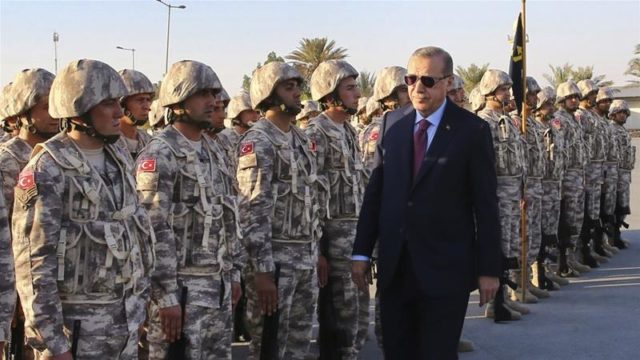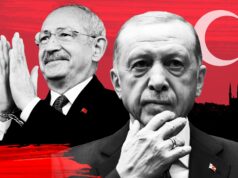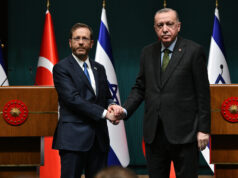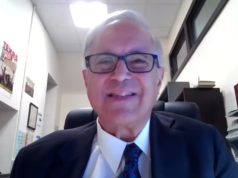Turkish President Recep Tayyip Erdogan said on Sunday that Turkey would “clean” its border with Syria, implying that the offensive waged against Kurdish militias in Afrin, Syria could be expanded to Manbij. Erdogan’s apparent disregard for borders or international alliance partners (there are American troops supporting Kurdish forces near Manbij) is part of a wider goal, global suppression of perceived enemies. Kurdish militias in Syria have long been an object of Turkish military adventurism.
This offensive against Kurdish militias in Afrin is problematic for the U.S. and NATO because Kurdish ground forces have been fighting allies there against ISIS, and are presently securing areas released from ISIS control. Ankara indicates that despite U.S. pressure to end the offensive, Turkey is determined to pursue a buffer zone for itself by using its own proxy, the Sunni-dominated Free Syrian Army (FSA). Domestically, Turkey has detained over 300 people in the last ten days for posting criticism of the Syria offensive to social media as Erdogan also accused doctors who opposed the assault of “betrayal” and of being “servants of imperialism.”
While the Turkish government has long suppressed dissent at home, Erdogan has recently expanded his crackdown on opponents outside of Turkey as well. After the coup attempt of July 2016, Turkey demanded the U.S. deport Fethullah Gulen, an exiled religious and political leader who founded a Turkish opposition movement. Gulen is a permanent resident of the United States. Ankara also issued a warrant for the arrest of an NBA player, Enes Kanter, who criticized Erdogan; Kanter remains in the U.S. but says his family in Turkey was pressured into denouncing him. In May of 2017, a mob of Turkish presidential guards assaulted protesters, including American citizens, outside the Turkish Embassy while the president was visiting Washington.
In at least 16 other countries, including Bulgaria, Qatar, and Saudi Arabia, Ankara has secured the arrest, deportation, or rendition of hundreds of Turks, including many who were under UN protection as asylum seekers. The charges were mainly tied to those individuals’ purported support for Gulen. Additionally, Ankara has pressured other countries to close schools linked to the Gulen ideology.
Even as the conflict in Syria has slowed, Erdogan continues to confront his political adversaries at home and abroad with violence. While Turkey’s “global purge” of regime opponents does not threaten world order, it surely undermines it and raises questions about Turkey’s continued role in NATO.






